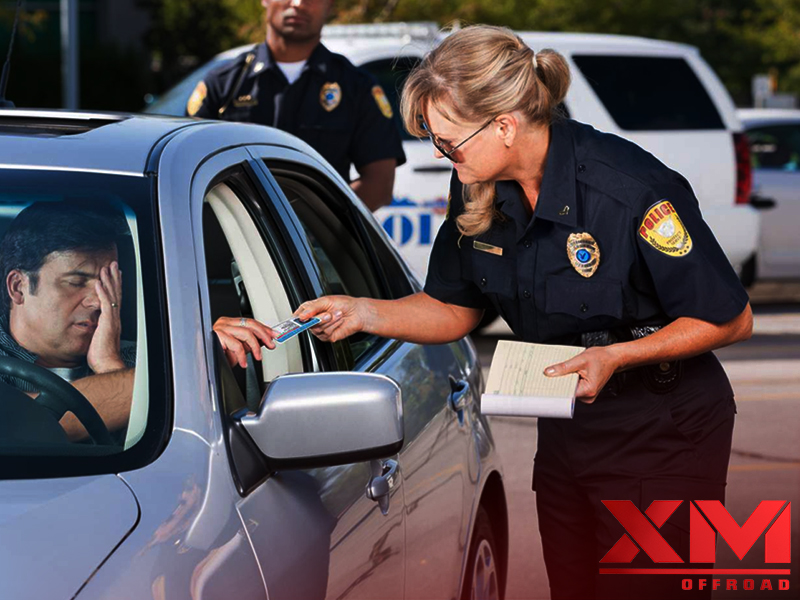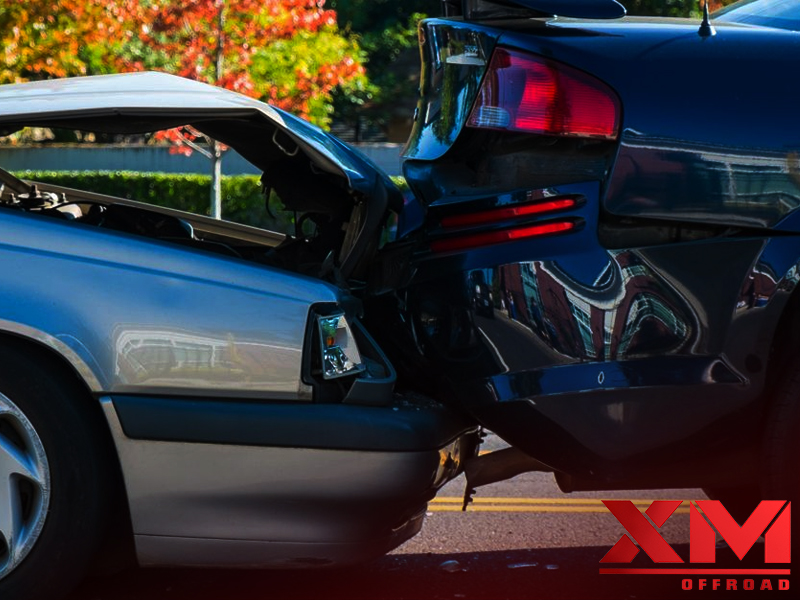Your driving record is one of the many factors that car insurance companies look at when figuring out your rates. You’ll pay higher premiums if you have a poor driving history, so keeping your records clean is essential.
A minor moving violation like a speeding ticket increases your insurance premiums by 10 to 15 percent. However, it can take up to three years for that violation to vanish from your records.
More tickets or other citations on these documents will increase your car insurance premiums.
These points indicate to insurance companies that you are a riskier driver than the average person.
Insurers then rate your risk and apply a surcharge to your policy once you hit a certain point threshold.
Keeping a clean driving record can save you money on your car with 28 inch wheels insurance. But it also can make you more expensive to insure if you’ve had accidents, claims, or violations.
Many states use point systems to track drivers’ infractions. Each state has rules for determining how many points you get for different offenses.
1. Speeding tickets
Speeding tickets are a reality for most drivers and can significantly impact your insurance rate. Depending on where you live, how many speeding violations you have, and the type of violation.
Fortunately, there are ways to mitigate the damage of a speeding ticket.
You can try to contest the ticket, complete a driving course or take a defensive driving class to lower your rates.
But that’s only if you can keep your record clean. And even then, you might still pay more than before your ticket because most car insurers consider you a high-risk driver.
For this reason, it’s best to be a safe driver and avoid speeding, especially on highways with traffic. You don’t want to face a severe accident after a few minor speeding tickets.
Your vehicle and your age can also play a role in how your speeding ticket affects your insurance rates. For example, older drivers generally pay more for their insurance than younger ones.
However, you can always shop around for a better rate. It’s possible to receive discounts from multiple car insurance providers.
-
It’s also important to remember that speeding isn’t a black-and-white issue:
Going a few miles over the limit is different from going 25 or 50 miles over the limit. Moreover, some states tie speeding offenses to points on your license.
As a result, some states require insurance companies to raise your rates if you’ve received too many points within a specific time frame. This can make comparing car insurance companies and finding a policy that fits your budget more difficult.
A speeding ticket can increase your car insurance rate by up to 30%. It can also take up to three years for your car insurance prices to return to normal after receiving a speeding ticket.
2. Reckless driving
Reckless driving is defined as any driving behavior that exceeds a driver’s standard of care for the safety of other people on the road. This severe offense can lead to jail time, fines, and license suspensions.
Reckless drivers often end up in accidents, which can cause significant property damage and even death. This is why reckless driving can severely impact your insurance rate.
A reckless driving citation carries much more baggage than a regular speeding ticket. The difference is that reckless driving is a criminal offense, and a conviction can stay on your record for years.
State laws generally define reckless driving as operating a vehicle in a way that shows a disregard for the safety of others. It also usually includes the knowledge that the driver is risking other people or property.
When a driver is convicted of reckless driving, their insurance company will look at many factors when determining their rates. These include the driver’s age, how long they have been with their company, and their driving record.
Some companies automatically add a point to their system for inexperienced or young drivers who receive reckless driving tickets, which can result in a higher rate than older drivers with similar records.
In most cases, the more serious a crash is, the more significant the increase in insurance.
Reckless driving is a misdemeanor, which means that the penalties are severe.
3. Underinsured driving
You must ensure that the appropriate insurance policy covers you when you’re involved in an accident. Unfortunately, many drivers don’t carry the necessary coverage.
Your insurance rate is based on your driving history. This includes speeding tickets, accidents, and other citations. It’s also based on where you live.
As a result, insurance companies have developed a risk-factor algorithm that uses these factors to calculate your insurance premiums.
As a result, it is vital to be aware of the type of vehicles you own and whether or not they qualify for discounts on your insurance policy.
Your agent can also help you determine the type of vehicle that will best meet your needs and fit within your budget.
4. Accidents
When it comes to insurance rates, several factors go into them. One of the most important ones is your driving record. This is a significant factor because it indicates how risky you are to insure.
Taking steps to improve your driving can help you save money on your insurance premiums in the long run.
Many insurers will offer a claims-free discount if you haven’t had an accident in the past three years. This discount is often worth a lot to people with good driving records.
Whether you file a claim after an accident will also affect your rate.
This is why it is essential to file a claim after an accident. Not filing a claim could result in you losing your coverage, making it difficult to get insurance anywhere else.
However, on average, your rates will double after an at-fault accident.
Accidents on your driving record affect your insurance rate in several ways. The exact amount your rate increases after an accident depends on various factors, including the accident’s severity, state laws, and insurance provider.
Insurers consider accidents high-risk, so they often charge higher rates for them. These increases are widespread for new drivers and those with at-fault accidents on their driving records.
Off-road rims car accidents that damage your vehicle and injuries are the most likely to cause an insurance rate increase. Other minor fender benders don’t affect your rate much. However, major violations such as speeding or hit-and-run may lead to a significant rise in your rates.
5. Traffic Violations
The type of traffic violations you receive can significantly impact your transaction rate. Generally, minor violations like low-level speeding are considered infractions, while more serious offenses such as DUIs may be misdemeanors or even felony crimes. Whether a traffic offense is classified as a misdemeanor or felony depends on various factors, such as previous convictions and whether or not the offender caused property damage and/or injuries.
Most states require traffic offenders to pay fines and attend Traffic School to have the violation removed from their driving record. In addition, many counties and municipalities require ticket recipients to attend court on their scheduled court date to resolve the matter.
It’s important to understand that while you can attempt to claim ignorance of the law in court, this isn’t an effective strategy. Judges hear this argument all day, and it’s not likely to help you get your traffic ticket dismissed.
Conclusion
Hence, your premiums may increase if you have a history of accidents or tickets on your record. These violations are recorded on your driving record and can impact your insurance rates for a long time.
The amount that your insurance company increases your rates depends on several factors, including the accident’s severity, the driver’s age, the state you live in, and your insurer.
Being an informed and clean driving record customer is the best way to regarding your insurance premiums. This means comparing coverage, premiums, and perks like free or discounted vehicle repair or replacement. You’ll also want to shop for the best rates in your price range, but be wary of the lowest-rated company.
Read Also: 10 Most Common Driving Errors That Can Cost Your Money and Life
Fortunately, there are several reputable companies out there to choose from. Whether you need a car, homeowners, or life insurance, scouring the web for the best deals in your area is an excellent place to start.
The best insurance carriers will give you the lowest rate and provide customer service that goes above and beyond.
FAQs
What Factors Can Increase Your Insurance Rates?
Drivers can lower their car insurance costs by lowering their coverage level, increasing their deductible, or bundling their policies. However, drivers should know these actions may not always lead to savings.
When Does Car Insurance Go Down?
Despite common belief, the answer to this question is not as magical as you may think.
Usually, car premium prices decrease gradually over time. The most significant drop in average prices occurs before a driver turns 25.
How Can You Decrease Your Insurance Rates?
While some factors that affect insurance premiums cannot be changed, there are many ways to save on your policy.
For example, driving a vehicle with solid safety ratings can help keep costs low. Some insurers may also offer discounts to drivers who choose a higher deductible on their auto policies.
What Raises and Lowers Your Car Insurance?
Car insurance costs rise over time due to population growth, medical costs, and the increasing price of auto parts and repairs.
Rate increases often occur when drivers renew their policies or switch insurance companies, but several things can also cause your premium to go up.



